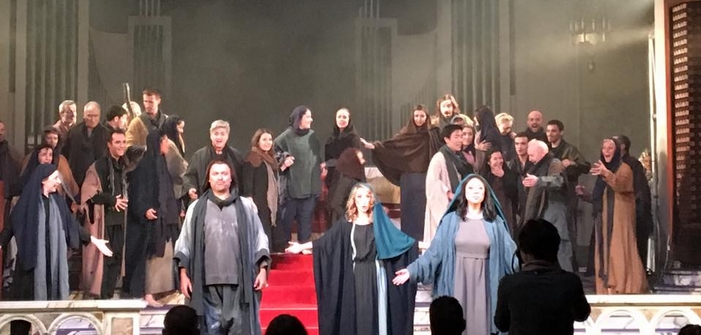After being performed at La Scala in Milan in 2003 and (*) and – in a concert version – at the Opera of Marseille in November 2014, it was the Church of Saint Pierre d’Arène that hosted Rossini’s *Moïse*, this work that depicts one of the key passages of the Bible.
This ambitious project comes from Abbé Gil Florini, known for his numerous artistic achievements, who shared it with the Nice lyric soprano Aude Fabre, founder and artistic director of the Lyric Company Madame Croche.
The unique aspect of the project also lies in its free access to the public (1,200 to 1,300 people), which included both connoisseurs and those who do not often have the opportunity or means to attend operas, requiring a large number of committed volunteers to assist professional specialists.
“Moïse” or “The Passage of the Red Sea” is an opera in 4 acts, created on March 26, 1827, at the Paris Opera. It is a revised version of “Mosè in Egitto,” which Gioachino Rossini had presented as early as 1818 in Naples.
The liberation from slavery, a central and relevant message…
The idea that man must ensure – more than ever – to maintain his condition as a free man and stay vigilant to avoid falling back into slavery again – in any form – is a message both ancient and terribly current… that demonstrates how human history is not yet complete…
*Moïse* reminds us how those who came before us acquired the freedom we hold today at a high price…


